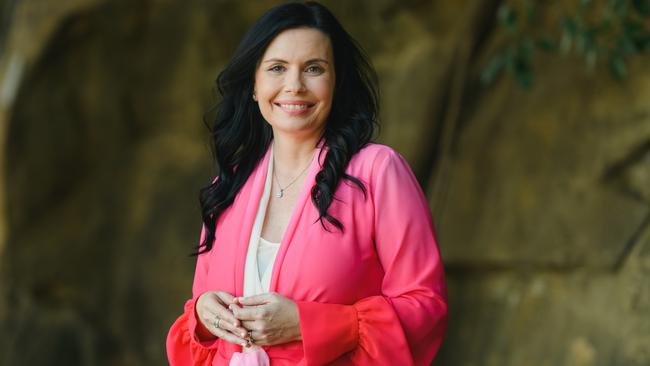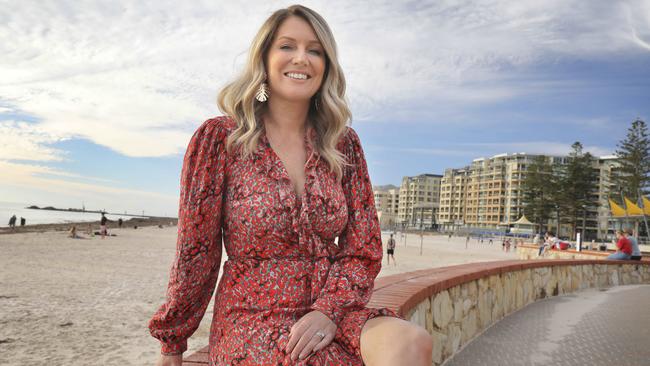How to combat COVID’s money stress on relationships
Household arguments around money have climbed as COVID-19 piles financial pressure on households, but experts say there are ways to reduce the relationship stress.
Coronavirus
Don't miss out on the headlines from Coronavirus. Followed categories will be added to My News.
Relationships have been strained and split by the pandemic as financial stresses spark wider problems among couples and families.
Job losses, wage cuts, shrinking investment income, uncertainty and insecurity are hitting households hard, and money specialists say the key to preventing a complete relationship breakdown is communication.
New research has found one quarter of couples are feeling a deep financial strain from COVID-19 and this has caused an increase in arguments and separations.
People aged 18-34 are arguing more about finances than any other age group, according to the survey by the Digital Edge Research Company, and households on incomes between $80,000 and $119,000 experience more strain than lower-income households.
Finance educator Vanessa Stoykov says Australia has high divorce rates and 2020’s circumstances “have not made it easier on anyone”.
“Almost half of households with children are stressed financially,” she says.

FIGHT FEAR
Understand that money stress often stems from fear, Stoykov says.
“When people feel like they don’t have control they become afraid, and fear is a rotten motivator,” she says.
“There’s no control so you resent the people closest to you – who else is going to take it?
“The further you slide into debt and out of control, the harder it is to climb out of the pit.”
ACT FAST
Stoykov says people should not let financial problems escalate to a point where they can’t be retrieved.
“Move to make payment plans consolidate debt, sell assets if you have to before you run out of funds, or Government assistance like JobKeeper ends,” she says.
Talk to banks and other lenders quickly, and seek help from money coaches or free financial counsellors.

TEAMWORK WORKS
Don’t cut partners and children out of financial discussions and decision making, Stoykov says.
“Stay united,” she says. “Don’t make each other the enemy. It’s so much easier when you do it together.”
MyBudget founder and director Tammy Barton says couples should have a team mentality towards money.
“One person may be at home raising children while the other is out working or they could both be in full-time work earning different amounts,” she says.
“Either way, healthy couples approach their finances like a team, not a power struggle.”
TALK ABOUT IT
Barton says partners should make time to sit down and have a calm conversation about money.
These talks should not just deal with pressing financial issues.
Ask big questions around financial goals, what you want to achieve in the next few years, and what does financial security look like to you, Barton says.
“Creating a budget is a good way to initiate money talk,” she says.
“Some partners have very different ideas about money – but that’s even more reason to create a budget. It provides structure and creates rules about how you’re going to use your money together. In turn, that provides certainty and relieves tension.”
MORE STORIES:
How banks make money from you, and how to claw some back
Blitz your summer electricity bill with these cost-saving tips
Checklist for property investors as confidence returns

FIND PANDEMIC POSITIVES
Some good has come out of COVID-19.
Barton has seen a lot of clients “power ahead” as lockdowns and social distancing put the brakes on old spending habits.
Stoykov suggests shifting your focus to appreciating the good things, such as people who had incomes cut getting more freedom to spend time with loved ones.
“Gratitude and focusing on the positive makes you happier, and your relationships more connected,” she says.
WHERE TO GET GAMBLING HELP
Gambling has been a growth area during COVID-19, with data showing huge increases in spending on online betting this year.
Relationships Australia says gambling can affect your health, employment and ability to support yourself and your family.
It says if left untreated, problem gambling could become a “significant long-term problem” but help is available through relationship counsellors and gamblinghelponline.org.au, which has a 24-hour phone number: 1800 858 858.
Free financial counselling is available on the National Debt Helpline: 1800 007 007.
Originally published as How to combat COVID’s money stress on relationships



